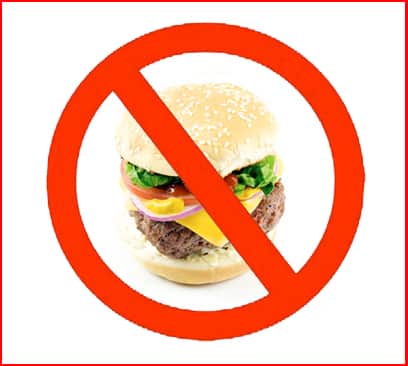
In the tobacco industry, a certain amount of accountability has been achieved, at least on paper, through some lawsuits. Would increased accountability in a legal, financially responsible sense, do anything to slow down the childhood obesity epidemic, if such accountability were demanded of the food industry?
Major food corporations, of course, do not want increased accountability, or indeed any. In 2005, they made a preemptive strike by getting into the good graces of a legislator named Ric Keller, who had taken hefty campaign donations from such outfits as McDonalds, Wendy’s, and Burger King. With the lofty title of “Personal Responsibility in Food Consumption Act of 2005,” the bill was designed:
… to prevent legislative and regulatory functions from being usurped by civil liability actions brought or continued against food manufacturers, marketers, distributors, advertisers, sellers, and trade associations for claims of injury relating to a person’s weight gain, obesity, or any health condition associated with weight gain or obesity.
The U.S. House of Representatives passed the bill in October of that year, although Keller himself was absent for the vote, being in the hospital because of cardiac arrhythmia. (Strangely, heart disease is one of the problems that would be addressed by demanding more responsibility from the food industry.) At any rate, it didn’t pass the Senate. But, by that time, around 20 states had passed some version of the “Cheeseburger Bill” on their own, to the great relief of the fast food industry.
What caused the industry to push for these laws was one case, where a class-action suit formed around a couple of teenagers back in 2002. McDonald’s was accused of being a childhood obesity villain. A judge threw it out, but then an appeals court allowed part of it back in.
Last year, Minnesota tried for what journalist Eric Roper describes as “the perennial cheeseburger bill,” implying that it wasn’t the first time. But Governor Mark Dayton vetoed it. Roper explains:
The governor said he agreed with the bill’s ‘intent to hold individuals responsible for their own dietary choices.’ But he disagreed with language allowing people to sue over weight gain if the company committed a ‘knowing and willful’ violation of state or federal law. Dayton said those two words create ‘too broad an exemption from liability.’
So, what’s the big deal with the “Cheeseburger Bill,” and why should be be concerned when the inevitable next attempt is made at the national level, to absolve food corporations of liability for the obesity epidemic? For starters, there is something ominous about the way the food industry sprang instantly to the alert with the creation of a federal bill, when there was, at the time, only one case of the type they wished to prevent against.
Michele Simon theorized:
What scares food companies even more than costly jury verdicts is the prospect of the discovery process — when lawyers are allowed access to the defendant’s documents and other inside information — unearthing damning information about dishonest industry practices. This in turn, can open the door to a plethora of new government regulations.
What exactly will be revealed through litigation that would harm Big Food? One possibility is evidence of efforts to addict consumers to its products… Recent studies reveal that some unhealthy foods — such as chocolate, sugar, meat, and cheese — are physically addictive.
Overeaters also demonstrate typical addiction behaviors such as craving, loss of control, and relapse. Lawsuits could help uncover the extent to which the food industry has known about, concealed, and taken advantage of such food addictions.
Your responses and feedback are welcome!
Source: “’Cheeseburger bill’ puts bite on lawsuits,” articles.cnn.com 10/20/05
Source: “Dayton vetoes ‘cheeseburger bill‘,” StarTribune.com, 05/27/11
Source: “Industry Rewrites Laws to Avoid Liability,” CorpWatch.org, 03/21/05
Image (modified) by The Culinary Geek, used under its Creative Commons license.

 FAQs and Media Requests:
FAQs and Media Requests: 












One Response
I would guess I’m getting old because i care about what i consume now, but the more i research i realize i (we) have been hoodwinked. How can national health associations take money from potential offenders of what they stand for? Do they receive gov’t subsidies? Furthermore, is the gov’t involved? This epidemic won’t resolve itself. Not telling consumers something is bad is wrong. Telling consumers something bad for them is good for them, that’s criminal.